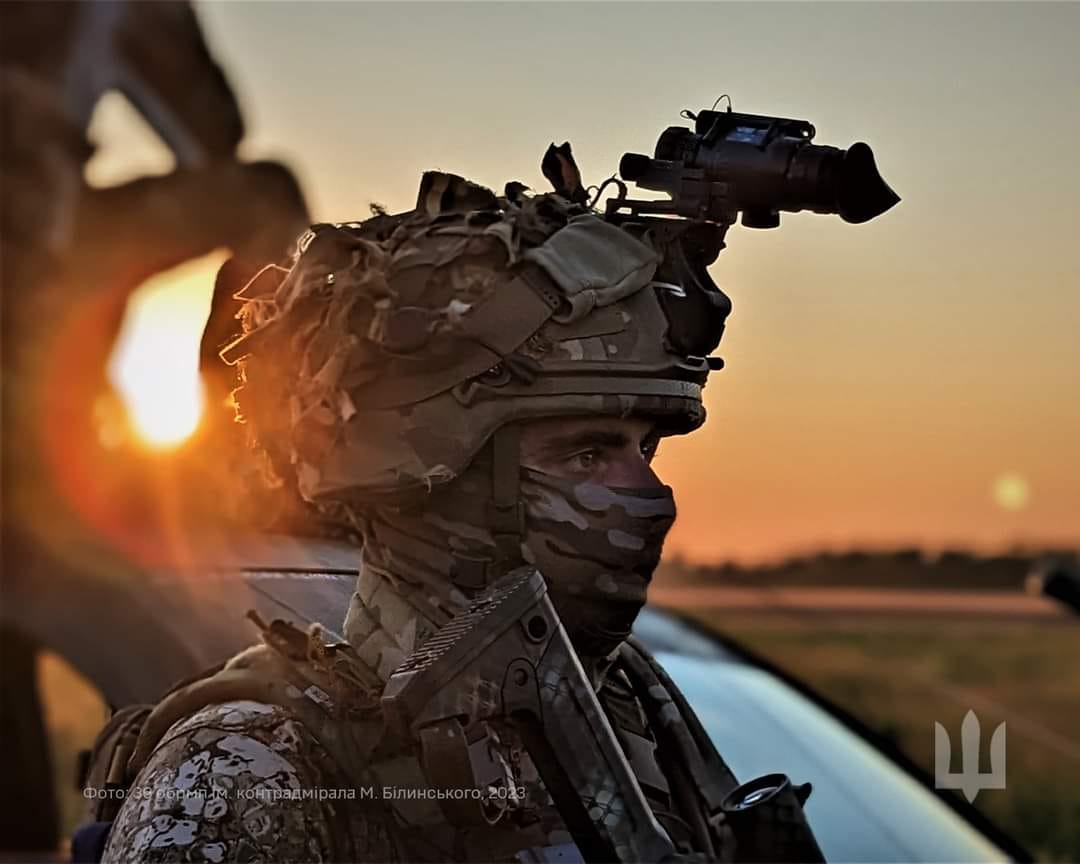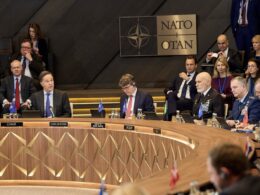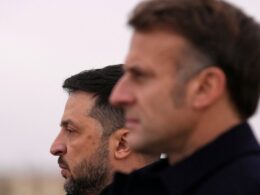American support has been both stalwart and unquestionably vital to the preservation of Ukraine’s sovereignty since the beginning of Russia’s full-scale invasion. The Biden administration has accomplished much in terms of uniting the West in the face of authoritarianism, dispelling talk of the perceived diminished role of American leadership and the supposed irrelevance of NATO. The ultimate establishment of these aims and many more, however, hinges upon one thing; a Ukrainian victory against Russia.
US policy in the pursuit of these ends is currently hampered by two inconsistencies which are contrary to its own interests. The first of these is a lack of clarity from Washington on the envisioned end of the war, which the aid is meant to achieve; and the second remains fear of escalation from Moscow.
This lack of clarity about the end of the war seems inconsistent with the decision to provide such substantial aid at all. From the perspective of a wider lens however, it is consistent with American support to other vital partners engaged in armed conflict.
This is most aptly demonstrated by the support of the United States to its Kurdish partners in northeast Syria in the (now largely forgotten but still simmering) fight against the Islamic State terrorist group.
Despite the lack of a Kurdish state, key parallels can be seen in the nature of US support to the Kurdish people and the Ukrainians.
Like that of the Ukrainians, the plight of the Kurds is existential, just, and backed by American hard-power (albeit in Syria in a far more direct way).
After paying a heavy price in their own blood, the Kurds were ultimately successful in a military campaign of survival made possible by substantial American support. Here it should be noted that, in the midst of an incomplete and imperfect victory, the Kurds continue to shoulder a significant burden on behalf of the international community in preventing an Islamic State resurgence.
It is not difficult to imagine a containment burden also being placed upon Ukraine on behalf of Europe and the international community in a war which ends with a badly bloodied, but not clearly defeated Russia. Also like that of the Kurds, it is unclear how long the flow of aid will last, and to what end the culminating point of aid to the Ukrainians is designed to achieve.
To put the question in the doctrinal terms of the American military, “What is the commander’s desired end state?”
While for Syria, no-one seems to know, “the preservation of Ukrainian sovereignty” is the most likely answer for the war in Europe.
But sovereignty to what end, and with or without compromise over territory? Here unfortunately, there is likely misalignment between Washington and Kyiv.
It is likely that this inconsistency has less to do with battlefield conditions in Ukraine, and more to do with “policy PTSD” in American national security circles originating from the War on Terror. This has resulted in an allergic aversion to any definable, desired “end-state” of a long-term military operation.
It is an odd stance to take when backing a capable state which has unity of command in pursuit of a definable war aim; survival, against a vicious belligerent with an equally clear aim, conquest and annihilation. (Although perhaps Moscow’s war aims at this point are unclear to its conscript army or Wagner’s convict mercenaries, based on publicly released statements from the latter’s commander).
So while this approach may appear confusing on the surface, it is actually a defining characteristic of US foreign policy of the post-9/11 era. It is consistent across different administrations. It is unfortunate this trend has continued into the current era of “great power competition.” If America’s so called “forever wars” are over, then the failed policies which defined them should end as well.
Far more difficult to grapple with though are the inconsistencies of the second trend; fear of escalation from Moscow.
To the consistent foreign observer of the Russian war against Ukraine, it is difficult to see which battlefield conditions are allowing for the perpetuation of this fear as a deterrent to more decisive aid from Washington.
“Escalation” in this sense refers to the range of options available to Russian forces, short of a nuclear strike. Within that context, escalation remains an ever ill-defined buzzword in official talking points.
To be clear – because Russia is the world’s largest nuclear armed state – the initial fear of escalation at the beginning of the war, was far from unfounded. The possibility of such an event certainly should maintain a reasonable place in the calculations of policy-makers. However, its current place has become unreasonable.
The introduction of ever more-advanced and long-ranging weapons to the Ukrainian army both by the US and its allies, has been accompanied by a consistent lack of responsive “escalation” from Russia, every step of the way.
A fear which does not adjust to the changing realities of its circumstances becomes irrational. Here, American policy-makers could draw from the Stoic example associated with the teachings of Epictetus (if you will allow for a bit of paraphrasing) about a crew aboard a ship being ravaged by a storm.
The sailors’ initial fear of the storm is reasonable, unavoidable and probably even helpful to an extent. Be that as it may, once the crew accepts the reality of the storm in their midst, allowing that initial fear to govern their actions, rather than adjusting their response to the changing realities and conditions set upon them, actually lessens their chances of survival.
The list of weapons systems is long and their capabilities wide – which has been decried as a supposed red line. But after being fielded by skilled Ukrainian hands on the battlefield – their presence and use has shattered that theory again and again.
This demonstrates that the current approach from the Biden administration is working and should be aggressively accelerated.
Policy should evolve (for such is the speed of those mechanics) to reality.
An embrace of battlefield evidence by decision makers and policy professionals in Washington will hasten the arrival of the only desired “end-state” which is both a necessary moral justice and a direct national security interest of the United States – a clear Ukrainian victory and a decisive Russian defeat.
 Andrew Loftesnes served in the United States Marine Corps and as a humanitarian volunteer in Ukraine. He currently lives and works in Washington, D.C.
Andrew Loftesnes served in the United States Marine Corps and as a humanitarian volunteer in Ukraine. He currently lives and works in Washington, D.C.
Related:
- The best way to help Ukraine if you don’t know where to start
- Why isn’t the West equipping Ukraine to win the war?
- We have stopped discussing the worst-case scenario in Ukraine. That is a mistake.
- What Ukraine needs to defeat Russia in 2023





